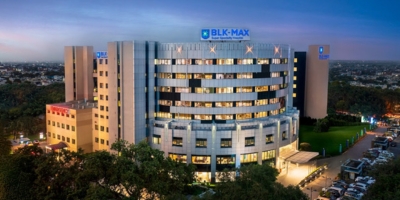Guide to Safe and Low-Cost Minimally Invasive Spine Surgery in New Delhi India

Get minimally invasive spine surgery in New Delhi, India, at low costs. Find the best orthopedic surgeons and hospitals.
Know the procedure, recovery time, and complications.
Find the right spine surgery program in India.
What Is the Cost of Minimally Invasive Spine Surgery in New Delhi India?
The cost of minimally invasive spine surgery in New Delhi, India is around $5,500. This price is up to 73% to 89% more affordable than the US.
In the US, the same surgery can cost between $20,000 and $50,000.[1] Moreover, the price range depicts only the cost of surgery and not related costs like additional hospital expenses, physical therapy costs, etc.
For people without insurance, spine surgeries, on average, cost over $75,000 in the US. The cost surges further in the case of vertebral fusion surgeries.[2]
Take a look:
|
Treatment |
Cost in India |
Cost in the US |
Savings |
| Minimally Invasive Spine Surgery | Starts from $5,500 | $20,000 - $50,000 | 73% - 90% |
Let's now look at the cost of different minimally invasive spine surgeries.
Cost of different Minimally Invasive Spine Surgeries in New Delhi India
There are various types of minimally invasive spinal (MIS) surgeries. They start from discectomies, which only require minor incisions, to complex procedures like vertebral augmentations.
Below is the comparative cost table showing different spine surgery costs in India and the US:
|
Procedure |
India (in USD) |
USA |
| Lumbar discectomy | $4,200 - $5,500 | $15,000 - $50,000[3] |
| Spinal fusion | $5,500 | $37,538 - $53,366[4] |
| Lumbar disc replacement with implants | $4,700 | $21,126 - $43,564[5] |
| Endoscopic discectomy | $3,500 - $6,000 onwards | $15,000 - $40,000[6] |
| Microdiscectomy | $7,500 - $9,000 | $15,000 - $50,000[7] |
| Foraminotomy | $8,600 | $8,520 - $77,976[8] |
Unlike open spine surgeries, minimally invasive spine surgeries are safer and faster. A number of methods can be used during a minimally invasive surgery. Some of these are mentioned below:
Lumbar discectomy is an MIS surgery that removes some portion of a herniated disc in the lower back to relieve pressure on nearby nerves. The surgery involves small incisions and specialized tools, resulting in less surrounding tissue damage and faster recovery.
Read all about how to get a Lumbar Discectomy in New Delhi, India.
Spinal fusion surgery permanently connects two or multiple vertebrae in the spine, eliminating motion between them. It stabilizes the spine, relieves pain, and corrects deformities.
In the lumbar disc replacement surgical procedure, the surgeon replaces a damaged or degenerated disc in the lower back with an artificial disc implant. This surgery aims to maintain spinal motion, reduce pain, and restore function.
This endoscopic spine surgery uses a small camera (endoscope) to remove herniated disc material. Through a tiny incision, surgeons access and treat the affected area, reducing nerve pain and pressure.
In this procedure, the surgeon removes a small portion of a herniated disc pressing on nerve roots. The surgeon uses a microscope and specialized instruments to access the affected area through a small incision.
Foraminotomy is a spinal surgery that enlarges the neural foramen, the passageway where nerve roots exit the spinal canal. This procedure relieves pressure on compressed nerves, typically caused by bone spurs, disc herniation, or scoliosis.
Treatment Type: Minimally Invasive Spine Surgery in New Delhi, India
Minimally invasive spine surgery uses small incisions and specialized instruments to access and treat spinal problems.
Compared to traditional spine surgeries, it aims to reduce tissue damage, blood loss, and recovery time while still addressing issues like herniated discs or spinal stenosis.
There are various kinds of minimally invasive spine surgeries:
- Spinal or lumbar decompression
- Diskectomy
- Spinal fusion
Spinal injuries and bone wear can cause spinal compression and nerve pain. Minimally invasive lumbar decompression uses small incisions. Therefore, it causes less trauma to surrounding tissues and allows faster recovery.
Spinal decompression surgery involves the surgical removal of a small portion of vertebral bone pressing on the nerve. The procedure only requires tiny incisions on the back region, and that too, without general anesthesia.[9]
In a minimally invasive discectomy, the surgeon removes part of a herniated spinal disk using tubular dilators and microscopes or endoscopes. The spinal disks, with a soft center and elastic outer ring, cushion vertebrae.
If the outer ring weakens, the soft tissue can bulge out and press on nerves, causing pain. The surgeon makes a small incision, removing only a small portion of bone and muscle. Laser spine surgery may also be performed if appropriate.[10]
This spinal fusion surgery joins two or more vertebrae with smaller incisions than the traditional open version. Performed with screws and rods, which are inserted through two small incisions. Then, the damaged disc is removed, and a bone-filled cage stabilizes the spine.[11]
Depending on your condition, the surgeon will choose between lateral interbody fusion or transforaminal lumbar interbody fusion. General anesthesia is used, and recovery is faster than with traditional surgery.
Procedure: Minimally Invasive Spine Surgery in New Delhi, India
The procedure for minimally invasive spine surgery in India is as follows:
- Before finalizing the surgery, you'll have multiple consultations with the surgeons.
- You'll also have various tests, from thorough physical examinations to imaging tests.
- The surgeon may also provide you with a list of pre-surgery instructions.
You will be given local or general anesthesia, depending on the MIS surgery type. During the MIS surgery, the surgeon will:
- Make one or multiple small incisions in your skin through the chest, back, or abdomen region.
- Then, they will insert a microscopic or endoscopic tube and view the operating area through this tube.[12]
- The surgeon will insert tubular retractors through the incisions to dilate the bone position.
- Then, they will use some small surgical apparatus through the tube to complete the procedure.[13]
- They will then remove the retractors and surgical apparatus, allowing the bones and muscles to return to their original positions.
- They will then surgically stitch the incisions and cover them with a bandage.
The following list of conditions can be treated using minimally invasive spine surgery:[14]
- Slipped disks
- Scoliosis
- Spinal tumors
- Spinal instability
- Vertebral compression fractures
- Cervical spondylosis
- Herniated disk
- Kyphosis
How can International Patients Get Minimally Invasive Spine Surgery in New Delhi, India?
MTC medical advisors reach out to patients who have spine issues and check their already existing reports. Initial medical reports are examined, including spine scans, X-ray, MRI, CT, Electromyogram (EMG), and Nerve Conduction Studies (NCS) if any, amongst others. Physical examination reports are also assessed in terms of reflexes, muscle strength, range of motion, sensitivity to touch, walking ability, tender regions in the back.
Our medical advisors discuss with partner hospitals whether surgery is required. Surgery is the last resort for a spine issue. Many times with medication and physiotherapy, spine disorders can be managed.
If the reports dictate that surgery is required, the treatment plan is chalked out. Doctors decide which exact treatment will be required for the patient.
Video calls take place with orthopedic experts and patients to discuss the procedure in detail.
The patient travels to New Delhi for a minimally invasive spine surgery.
Before the Surgery
- Once the patient visits the partner hospitals, 1-2 days of investigation are done thoroughly.
- New imaging, radiology examination, or clinical examination could be needed. Neurology experts may intervene. Once the magnitude and intensity are decided, the surgery is scheduled.
Here is a timeline of the surgery
| Phase | Duration |
| Pre-operative | 1- 2 days |
| Surgery | Depends on the exact surgery |
| Post-operative | Can range from 24 hours to a week |
| Follow-up stay in the country | Can range from quick discharge to 2 weeks |
The patients usually consult with physiotherapists who give them a couple of weeks of physiotherapy, muscle strengthening programs post-surgery, and lifestyle changes.
Want to get spine surgery in India? Know the complete guide on how to get a spinal fusion surgery in New Delhi, India.
Candidate: Minimally Invasive Spine Surgery
The surgeon will determine whether you are a suitable candidate for minimally invasive spine surgery on the factors like:
- The spine must be accessible for surgical procedures to be carried out.
- Considered when alternative treatments fail to relieve symptoms.
- The exact location of the symptom in the spine is known.
Recovery and Care: Minimally Invasive Spine Surgery
- After MIS surgery, you'll be moved to a private ward to recover from anesthesia.
- Some surgeries allow same-day discharge; others require a hospital stay.
- Discomfort and pain will be less than with open surgery.
- Complications are low but possible.
- Complete recovery averages around 6 weeks.
- Physical therapy and exercises will be prescribed to strengthen spine muscles and bones.
Complications: Minimally Invasive Spine Surgery
Every surgery has risks. Here are the potential complications during and after minimally invasive spine surgery:[15]
- Infection
- Bleeding
- Nerve damage
- Spinal fluid leak
- Anesthesia-related issues
- Chronic pain
- Blood clots
- Pseudoarthrosis (failed fusion)
- Incomplete relief from symptoms
Benefits: Minimally Invasive Spine Surgery
Here are the key benefits of minimally invasive spine surgery:
- Shorter procedure
- Faster recovery time
- Smaller incisions, less muscle and tissue damage
- Reduced blood loss and infection risk
- Improved cosmetic results
- Less postoperative pain
- Shorter hospital stay
The recovery process is much faster than traditional spine surgeries, and you are back on your feet in much less time.
Overview: Minimally Invasive Spine Surgery in India
Minimally invasive spine surgery in India has seen significant growth in recent years. Many major cities boast centers equipped with advanced technology for these procedures.
Indian surgeons, who are also internationally renowned, are increasingly adopting these techniques.
Spine Health and Surgery
Increasing spine issues and surgeries stem from sedentary lifestyles, poor posture, an aging population, and rising obesity rates.[16]
Shockingly, a report also mentions that the rising number of road accidents worldwide has contributed to the rise in spine surgery markets.[17]
A study by the Asian Journal of Neurosurgery reveals the majority of spinal cord injury victims (86.8%) in road accident cases are drivers.[18] Improved diagnostics and surgical techniques and greater awareness have made spine surgeries more accessible.
India: The Rising Hub of Spinal Surgeries
With advancements in spine health, India has lately emerged as the center of spine health. The primary reason behind this is the growing Indian medical infrastructure and affordable surgery costs, including spinal surgeries.
Surgeons in Asian countries like India are rapidly adapting to new minimally invasive techniques compared to European and North American surgeons, says Springer Journal.[19]
Another study conducted by the Journal of Spine Surgery shows the adoption of MIS surgeries worldwide is highest in Asia (72.8%), including in countries like India.[20]
Moreover, researchers at the Indian Institute of Technology have developed an advanced robotic system for minimally invasive spine surgeries.[21]
These developments have given Indian surgeons mastery in spine surgeries, making them much safer and more affordable in India.
Success Story Straight from Patients
Listen to Mr. Ian Beckett, a citizen of the UK, talk about how he got Minimally Invasive spine surgery in India, a treatment that changed his life. Tired of the long waiting period, Mr. Ian found MTC, and the rest is history.
Check out this video right here.
Robotic Spine Surgery in Delhi, India: A Minimally Invasive Blessing For THIS UK Citizen!
What Is the Success Rate for Minimally Invasive Spine Surgery?
The success rate for minimally invasive spine surgery is over 95%.[22] The study reported no intra- and post-operative complications. These promising results show how effectively and safely MIS surgeries are performed.
Let’s explore the best choices for your treatment in India.
Best Hospital for Minimally Invasive Spine Surgery in New Delhi India

JCI-accredited, it is one of the largest private hospital. It ranks among the top 10 multi-specialty hospitals.
Dedicated services for medical tourists from over 100+ countries.
It serves local and international patients, specializing in orthopedic treatments, cancer, bariatric surgery, and cardiology with advanced, European-standard equipment.
- 60+ Years of Experience
- JCI Accredited
- NABH Accredited

NABH-accredited, this hospital is a renowned 250-bed hospital in New Delhi.
The hospital is well-equipped with Tesla MRI and Cath Labs and 50+ critical beds. With this, it offers Orthopaedics, Cardiology, Urology, Neurology, Paediatrics, Obstetrics, and Gynaecology.
- NABH Accredited
- 300+ Doctors
- 22+ Departments
Best Surgeon for Minimally Invasive Spine Surgery in New Delhi India

Dr. Puneet Girdhar( BLK-Max Super Speciality Hospital )
Dr. Girdhar has fellowships in spine surgery (Wales), arthroplasty (Germany), and trauma (USA). He has performed 10,000+ surgeries, including robotic spine procedures.
He leads the Orthopedic Spine Surgery department at BLK-Max Institute.
Memberships
- North American Association of Spine Surgery
- European Spine Society
- AO Spine International
Why MTC Partners for Minimally Invasive Spine Surgery in New Delhi
Conducting minimally invasive spine surgeries requires experienced surgeons, advanced technology, a multidisciplinary approach, and comprehensive support, all of which you get in MTC’s JCI-accredited partner hospitals. You also get:
- Patient-centric approach with the highest standard of recovery and rehabilitation services
- Highly skilled surgeons with an experience of over 15,000 successful spinal surgeries
- State-of-the-art tech with advanced surgical techniques
- Surgeons who are pioneers in advanced robotic-assisted spine surgeries, etc
Conclusion
The 95% success rate of minimally invasive spine surgery in New Delhi India, showcases India’s superior medical capabilities. Experienced surgeons and medical care are all available at very affordable prices.
Get bonus vacation with your treatment!
Contact us today to find the right hospital for your spinal surgery
Is Minimally Invasive Spine Surgery in New Delhi, India Safe?
Yes, minimally invasive spine surgery in New Delhi India, is absolutely safe. With a success rate of over 95%, the country offers the best opportunity.
The risk of complications during minimally invasive spine surgery is quite low compared to traditional open surgery. However, there is always risk involved with surgery; therefore, no one can guarantee 100% success.
FAQs
Most hospitals in India doing spine surgeries are run by world-class doctors; therefore, some of the best spinal surgery hospitals include:
- Max Super Speciality Hospital, Saket, Delhi, India
- BLK-Max Super Speciality Hospital, Delhi, India
Recovery time for minimally invasive spine(MIS) surgery varies but is generally shorter than traditional open surgery. Most patients can return home within 1-2 days. Light activities may resume in 1-2 weeks, with full recovery typically taking 4-6 weeks. However, complete healing and return to strenuous activities may require 3-6 months, depending on the specific procedure and individual factors.
References
- Barricaid: What Will I Pay for a Microdiscectomy if I Don’t Have Insurance?
- CBS News: Most expensive medical procedures in the U.S., ranked
- Los Angeles Minimally Invasive Spine Institute: PERCUTANEOUS LUMBAR DISCECTOMY
- Sidecar Health: Cost of spinal fusion by state
- Centers for Artificial Disc: How much does artificial disc replacement cost?
- DUEK Spine Institute: Discectomy Surgery
- Healthline: Microdiscectomy
- PubMed: Risk and Cost of Reoperation After Single-Level Posterior Cervical Foraminotomy: A Large Database Study
- Cleveland Clinic: Minimally Invasive Spine Surgery
- Johns Hopkins Medicine: Minimally Invasive Lumbar Discectomy
- American Association of Neurological Science: Minimally Invasive Spine Surgery
- Neurosurgical care: How Weight Affects Your Spinal Health
- Transparency Market Research: Spine Surgery Products Market
- Asian Journal of Neurosurgery: Spinal injury resulting from car accident: Focus to prevention
- Springer Journal: The future of minimally invasive spine surgery in low-income Latin American countries
- Economics Times: IIT researchers develop robot for less painful, more affordable spine surgeries



